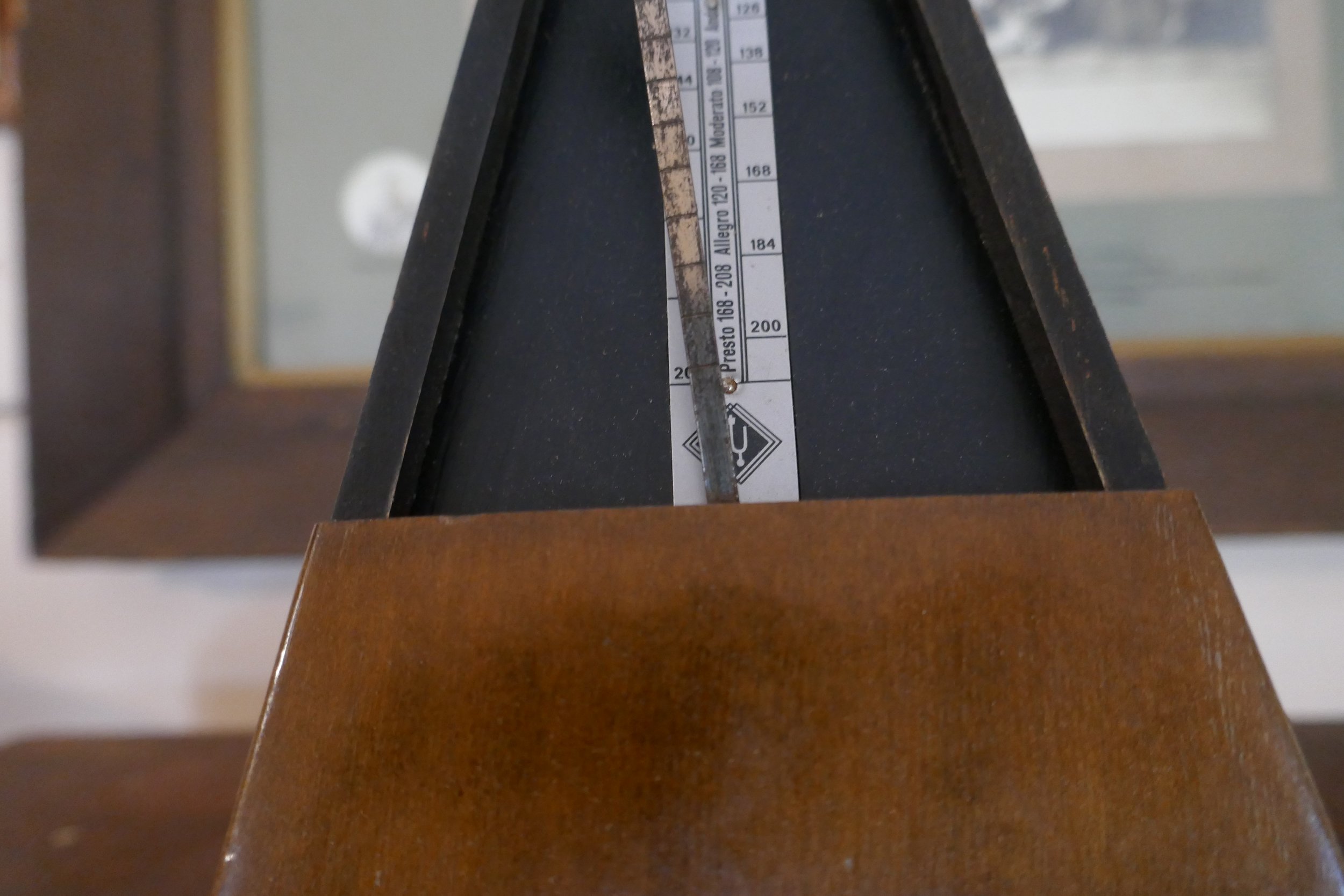An interesting organ stool that is in the Tairei Historical Musuem.
The above photos were taken at Tairei Historical Museum.
These photos were taken in a cafe in Lawrence.
Bord pianos
Antoine Bord, born in Toulouse in 1814 was a piano maker in Paris. He was apprenticed to a cabinet-maker at the age of thirteen. When his apprenticeship was over, he found work in a bigger business and there he built the cabinet for a piano. He assistance of some of the internal work gave him the idea of becoming a piano maker. He went to Marseilles where he found employment as a piano key maker. After this he moved to Lyons where he worked for a piano manufacturer. By the age of 20, now living in Paris, Bord began making pianos on his own account. But he was offered a job in the Pleyel company where he became a regulator and repairer. In 1843, Bord started his own business.
The following article was placed in the New Zealander on the 12th August 1865. ‘We were permitted yesterday to view pianos, harmoniums etc, which Mr Joseph Browne has for sale at his residence, Grey Street. Among them, there is an extremely handsome French-made piano by Bord. It is of solid English oak with a silk and highly ornamented front. There are three wires for the treble from middle C; the section is patent check; and in order to stand the climate, the piano is furnished with an extra bolt. The piano possesses great richness of tone and its dimensions render it well adapted to a school-room. Mr Browne has stated the price of thirty-two guineas, and an inspection will show that this charge is exceedingly moderate. He also has for sale a very pretty walnut piano, made by Bord, of Paris, which he offers for 37 guineas, a French harmonium, and also a splendid piano of oblique section by Erard, London. The price of this one is 85 guineas’.
There is an article in the Southern Cross dated the 12th June 1869 where there is an article concerning a collection of pianofortes and harmoniums at a warehouse in Wellesley St, Auckland. It mentions French pianos by saying ‘which for the brilliancy of touch, and purity and sonority of time, could not be excelled The pianos by Bord, the Franch maker, and which have lately come into such general use at concert rooms from the sonorousness of their notes, are especially worthy of mention – their strength of tone being produced by the patent three-string arrangement which is generally to be found in this class of instrument. Among so large a variety of pianos, every design of case will be found, from the plain polished oak schoolroom, to the elegantly finished rosewood or walnut wood piano, beautifully fretted and set of with fronts of choice silk’.
In November 1870 the Evening Post dated 7th November 1870 has an article from Melbourne discussing a letter from A. Bord and Co to their Melbourne agent. The letter, bearing the date 9th September 1970, is headed by an engraving representing the medals won by the firm at the Exhibitions of 1855 and 1862 but the obverse, is carefully defaced with red pencil. The writer says “Paris is in a state of siege, and we expect the Prussians in a day or two. Paris is ready for any emergency if the enemy gets inside the fortifications. In that case, fare you well, sir. I mean to fight it out to the last”. The firm in question, like many others, was sending every piano they possessed out of Paris. It is reported, indeed, that enormous bargains have been made by English firms dealing in French manufactures.
The North Otago Times dated 4th August 1878 informs their readers that ‘we had the pleasure yesterday, at the music depot of Mr Solomon, Thames Street, of inspecting and listening to the tones of perhaps the handsomest cottage piano we have ever seen in Oamaru. It is one of A Bord’s and is an oblique tri-cord 6 7/8 octave, with check action and all the latest improvements. It possesses great mellowness of tone, and as an article of furniture as well as a musical instrument, is worthy of any drawing-room, the case being of solid ebony polished to perfection. It is fitted with double light-brackets and is in every respect beautifully finished’.
In the Bush Advocate dated 5th June 1888, it states under the heading “A Kindly Employer” that ‘M. Bord, piano manufacturer of Paris has lately died and left every one in his factory who has worked there for five years 1000 francs (£40); to everyone who has worked there for six years 1300 francs and so on, increasing 300 francs for each year that the recipient has worked, The system of profit-sharing was introduced into m. Bord’s factory in 1864; it included all the employees, and the distribution of the profits was annual and complete; 10 per cent was first set aside to cover the risks of the trade, and provide interest on the employer’s capital. The remainder of the profits were then divided in the ration of the wages received; the wages of the capital being reckoned in so that M. Bord received a share of this second division. The division is said to have amounted on several occasions to from 20 to 24 per cent on the wages, though during the last few years the pressure of foreign competition has reduced it’.
The Manchester Courier, and Lancashire General Advertiser of 1st September 1891 has an article about the Bord piano manufacturing company. It states that the founder, Antoine Bord died in 1888 and his nephew of the same name, has taken over the company. It tells their readers that ‘the original owner of the name now so well known in many parts of the world for the cheaper and smaller kinds of pianoforte, the better class of the Bord instrument being generally used in France, only commenced manufacture in 18345, and afterwards spent ten years at Pleyel, starting his own business in 1844. The Bord Instruments formerly were extensively used in Germany, but of recent years have been almost excluded by the native instrument. The firm continues to do a very large business in France, and the annual manufacture of instruments exceeds 3.500’.
The Southern Cross of Invercargill has the following article in their weekly newspaper on the 16th April 1904. It states that ‘the Fire Brigade can now boast a piano. The work of raising funds for the purpose was started some time ago, and when the greater part of the cost was in hand, Mr Stevenson, of the Dresden, was commissioned to supply a good instrument, and executed the order by sending up a Bord. Since then, the instrument has been in great request, and the way the members encore anything good proves that they have keen ears for harmony as well as fire alarms’.
Dictionary of Music and Musicians
www.paperspast.natlib.govt.nz
Photos from personal collection.


















